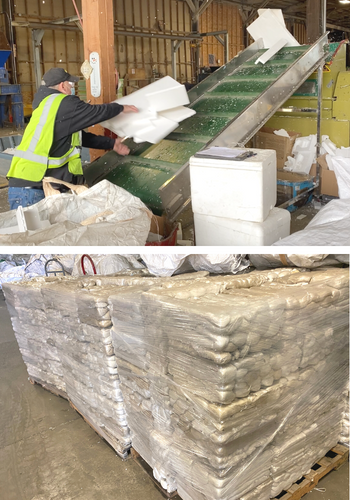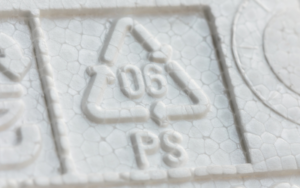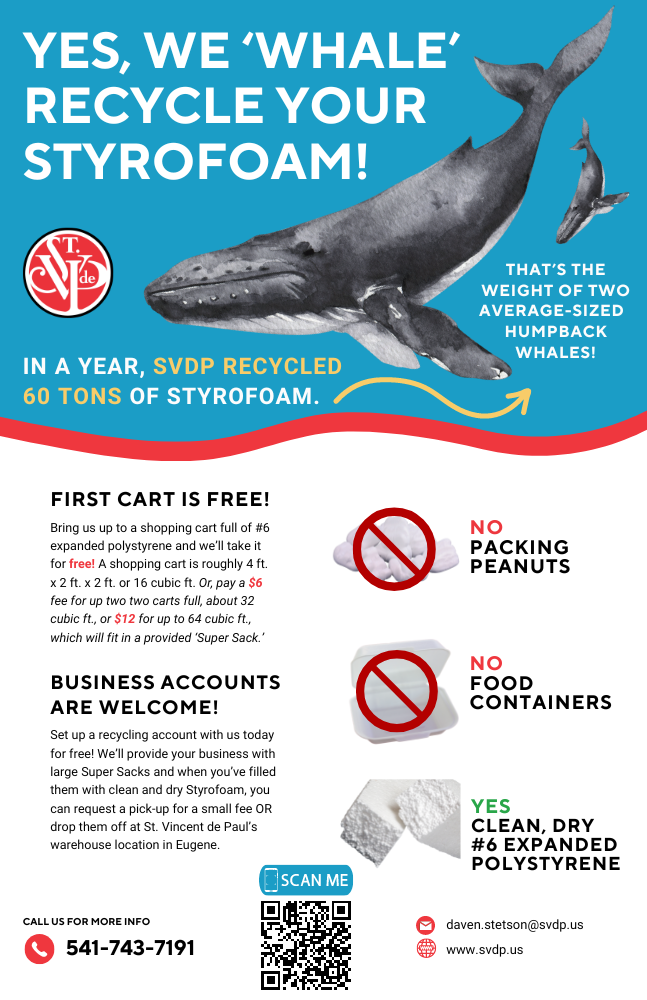
An SVdP worker, top, loads a machine that compresses expanded polystyrene into dense logs, shown on pallets at bottom for shipping to manufacturers.
If asked to stop and think about expanded polystyrene, the first question that comes to your mind might be “What the heck is expanded polystyrene?”
Quick answer: You know it as that lightweight, rigid yet cushioning white foam-block material that protects all manner of new products in their packaging. You can call it EPS for short, or might refer to it by Dow Chemical’s trademarked name of Styrofoam, as you probably have all along (even though that’s actually a different material, extruded polystyrene).
The next question that comes to mind about Styrofoam, or whatever you want to call it, might be “Where the heck can I get rid of this stuff responsibly?”
Quick answer: St. Vincent de Paul Society of Lane County (SVdP) — at least if you live near any of the Oregon nonprofit’s donation drop-off locations at St. Vinnie’s stores, mostly in Eugene-Springfield and greater Lane County. SVdP is the area’s only recycler of #6-marked EPS blocks and one of very few in the state. Anyone can drop off a grocery cart-sized amount of clean EPS at any St. Vinnie’s donation center for free, or pay a small fee of $6 or $12 for larger amounts (all pricing and other details HERE).
Worthwhile stewardship effort
If you haven’t really thought about any of this before now, you would be prudent to consider how to responsibly handle your EPS. Those light but bulky, dreadfully squeaky blocks that accompany so many new electronics, appliances, and other items are not only cumbersome to deal with on the household level, but are an environmental scourge on the worldwide level. Few avenues exist for proper recycling of the material, a form of chemically air-injected plastic that is essentially non-biodegradable — and yet not very durable. It easily crumbles into smaller pieces and contributes greatly to the growing problem of micro-plastics pollution in the world’s oceans.

SVdP recycles #6-marked EPS products.
A commitment to sustainability and the responsibility to preserve and protect the environment are two core values at SVdP, Lane County’s largest human-services nonprofit. SVdP operates an array of successful waste-based businesses and recycling initiatives, including a network of 13 retail-thrift stores and the nation’s largest mattress-recycling program. It all combines to create quality jobs and generate self-sustaining revenue in support of SVdP’s social services, from emergency shelter to affordable housing, while at the same time elevating environmental stewardship.
SVdP nets some 100 tons of material every day from the assorted waste streams of modern society. SVdP collection efforts diverted an estimated 21 million pounds of material directly from landfills in 2021. Expanded polystyrene recycling forms a fairly small percentage of those overall numbers, but it is an important effort that reflects SVdP’s leadership in responsible resource stewardship.
How SVdP’s program works
SVdP collects clean, white EPS blocks in household-sized amounts at all of its donation-dropoff locations (see a list HERE), and offers recycling accounts for businesses with larger recurring amounts. SVdP continually transports the collected material to a Eugene warehouse site, where staff operate a specialized machine that shreds and compresses the lightweight blocks into dense, easily transportable logs.
Finally, SVdP sells and ships those EPS logs to a variety of companies for manufacturing new polystyrene-based products. Recent examples include architectural moldings and picture frames sold at major retailers across the country.
For visualization’s sake, if you were to spread out all of the EPS foam blocks that SVdP processed in fiscal year 2022, they would cover the football field at the University of Oregon’s Autzen Stadium to a depth of 6 feet — with the resulting compressed logs weighing 60 tons, or about as much as two average-sized humpback whales!
So the next time you stop to think about expanded polystyrene (probably because it’s piling up at home), remember that our society produces a veritable ocean’s worth of this environmentally problematic stuff. And keep those whales in mind as a symbol of one easy pollution solution you have at your disposal, thanks to your partners in environmental stewardship at St. Vincent de Paul.

